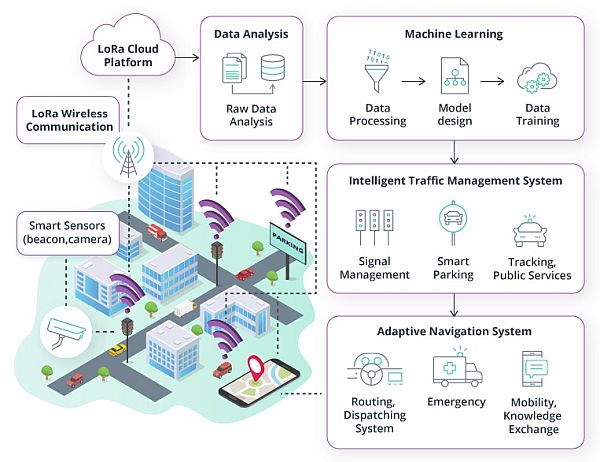Will AI Revolutionize Manufacturing? Don't Be the Last to Find Out
Although the role of industrial AI is still to be determined, many manufacturers are already claiming that early adoption is providing significant advantages. Henry Martel, Field Application Engineer, Antaira Technologies, writes about the risk of being left behind and gives us 5 examples of how it could be implemented into your operation.

Manufacturers worldwide are implementing Artificial Intelligence (AI) and its subsets Machine Learning (ML) and Deep Learning (DL) neural networks, aiming to convert terabytes of harnessed IIoT data into high-value actionable insights.
If they haven't already, manufacturers need to begin applying AI in pilot programs to acquire knowledge, hone skills, and achieve early successes to leverage in generating organizational momentum and gain buy-in support.
Early adoption of AI is providing businesses with significant advantages that are putting them ahead of the competition. For those that don't, the risk is to be left behind.
Industrial AI Use Cases
Manufacturers can benefit from AI implementations in several ways. Below are five use cases to explore and consider:
- AI-based Predictive Maintenance: When organizations neglect to maintain machinery, they run the danger of costly downtime and employee accidents. Yet if they perform maintenance too often, they squander money and resources. AI-based Predictive Maintenance (PdM) gives manufacturers the tools to predict what parts need replacement and when, resulting in a decrease in unplanned downtime and substantial cost savings. By analyzing real-time data from sensors, algorithms can also proactively recommend new settings to prevent equipment wear-and-tear if, for example, temperature or humidity within the factory significantly changes.
- Al-based Lights Out Manufacturing: The lights-out factory, which runs solely on robotic labor and requires very little human interaction, is a product of artificial intelligence, robotics, and next-generation automation technology. Robotic systems work around the clock without getting sick or fatigued, and they can create more goods with fewer errors than human laborers.
- AI-based Supply Chain Management: Supply networks for large manufacturers often handle millions of orders, purchases, materials, and components. Because it takes considerable time and resources to handle these tasks manually, more manufacturers are bringing Industrial AI into their supply chain operations as a potent instrument to help tackle logistics, demand forecasting, and procurement challenges. According to McKinsey, implementing AI supply chain management has enabled early adopters to improve logistics costs by 15 percent, inventory levels by 35 percent, and service levels by 65 percent, compared with slower-moving competitors.
- AI-based Machine Vision: Traditional machine vision is being extended by AI far beyond inspection and quality control. Computer vision algorithms can now be used by manufacturers to examine high-speed images of tiny components and complex products. AI algorithms are more accurate than humans at identifying flaws, irregularities, and deviations from quality norms. Computer vision is also on the move. Mobile robots that possess intelligent machine vision can see in 3D, pick-and-place complex components from bins, and inspect each other's work. Vision-guided Cobots (Collaborative Robots) safely operate in close proximity to their human counterparts, assuming repetitive assembly tasks, heavy material handling, and other dull, dirty and dangerous jobs.
- AI-based Generative Design: In this use case, generative design algorithms create product blueprints and instructions based on criteria that human designers specify, such as the materials to be used, the desired product's size and weight, the production processes to be employed, and the estimated cost. Several prospective ideas are generated for the product development team to choose from and improve on.

The list above is far from exhaustive and represents only a few examples of how Industrial AI is making production more efficient, safer and cost-effective. Possibilities are truly endless.

Getting Started
Realizing the potential benefits of Industrial AI in manufacturing is one thing but putting it into practice is quite another. Begin by asking yourself a few questions:
CORE BUSINESS USE: In what areas can Industrial AI help optimize plant operations? In what areas are you looking to simply automate repetitive tasks? Alternatively, in what areas are you seeking to fundamentally change the nature of your manufacturing? Once your list is established, you can identify a high-profile use case as a pilot program to lead your AI plans.
INTERNAL TALENT: What is the level of your internal expertise? Data scientists, solutions architects, and analytics translators are all crucial. This team will collaborate with various manufacturing functions to jointly develop and put into practice AI solutions.
DATA: The amount of data available will dictate the precision of algorithms. What historical data do you have access to? What format it is in? Enough historical data must be available for AI to comprehend how various factors and adjustments affect output.
CULTURE: Can your organization adapt to the broad scale use of analytics tools and data-driven decision making? What level of trust do employees have in data and algorithms? To get your team on-board, C-suite executives need to actively show commitment to disruptive AI methods and technologies.
TECHNOLOGY: Do you have a strong, scalable data infrastructure in place? We are not just speaking of PCs and sensors. You'll need central data management platforms, cloud services, open-source tools, IoT connectivity throughout the enterprise and plant floor, data lakes to collect raw sensor data, and advanced cybersecurity. If your networks can't handle the speed and volume of incoming data, the benefits of Industrial AI will remain out of reach.
Deploying AI is helping manufacturers thrive in today's dynamic and increasingly information-driven business world. If you are looking to join their ranks, you'll need a partner with expertise in developing smart connectivity solutions engineered to withstand harsh industrial environments. Antaira Technologies is a leading developer and manufacturer that provides high-quality industrial networking and communication product solutions.
Want more information? Click below.
Rate this article
View our terms of use and privacy policy ::m::